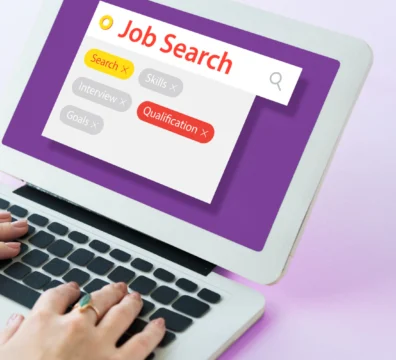Did you know that the HR job is one of the most stressful? Well, it’s no surprise- given they are responsible for managing a lot of the operational work, hiring to payroll management, and even employee onboarding and termination. This is more significant in small businesses where you often don’t have a large HR team due to budgetary constraints.
A recent study has seen that 81% of HR managers feel they don’t have enough workers to help them with their work. With 53% of HRs saying that their workforce has grown in the last five years, but only 4 out of 10 respondents said that they had seen any increase in their HR budget.
This can be solved by using HR software small business. This handy technology can be a game-changer for small businesses, but choosing the right one can feel confusing with so many options on the market.
We’ll walk you through everything you need to know about choosing the best HR software for small businesses so you can find the perfect fit and free up your time to focus on what you do best. Let’s get started!
Begin by Understanding Your Small Business HR Software Needs
Before you start browsing shiny options for HR software small businesses, it’s crucial to get clear on your business’s unique HR needs. Ask yourself:
- What HR tasks are taking up the most time? Is it tracking Paid-Time-Off (PTO) requests, managing payroll, or something else?
- Where do you face frequent bottlenecks or errors? This could be with onboarding paperwork, compliance issues, or performance reviews.
- What are your growth goals? Do you anticipate needing more advanced HR software for small businesses as you expand your team?
Taking the time for this self-assessment is key! It’ll help you avoid investing in HRMS for small businesses with a bunch of features you’ll never use or, worse, one that doesn’t address your most pressing pain points. Think of it as creating a customised checklist for your HR technology needs- this will make your search much more focused and efficient!
5 Essential Features to Look For in HR Software For Small Businesses
Choosing the right HR software small businesses can make a world of difference. To streamline your HR processes, save you time, and reduce headaches, look for solutions that offer these key features:
Payroll Management
Accurate and timely payroll is essential! Look for HR software for small businesses that simplifies calculating wages, taxes, and deductions. It should integrate seamlessly with your preferred accounting software to minimise double entry and errors.
Time and Attendance Tracking
Simplify time tracking for hourly employees and manage PTO requests with ease. This feature can save you countless hours of manual calculations and keep your team informed about their available time-off balances.
Employee Self-Service Portal
Empower your employees and save yourself administrative work! A self-service employee management software for small business allows employees to view their payslips, update personal information, and submit PTO requests without needing to bother HR.
Benefits Administration
Managing benefits can be complex for small businesses. Look for HR software that helps organise and track your benefits offerings, facilitating easy enrollment and handling any necessary deductions.
Onboarding and Offboarding
First impressions matter! Streamline your onboarding systems for small businesses to make the new hire experience smooth and efficient. Look for software that facilitates document collection and e-signatures and automates welcome emails for a welcoming introduction to your company. It’s also useful to have features that manage the offboarding process promptly and efficiently.
Remember, the best HR software small businesses doesn’t necessarily have the most features. Focus on what addresses your most pressing needs and challenges, and ensure the software is easy for you and your employees!
5 Questions to Ask Before Choosing HR Systems for Small Businesses
Beyond features, finding an HR software provider that’s a good fit for your small business is important. Here are some questions:
Cost
Understand the pricing model. Is it a subscription-based model or a one-time purchase? Are there additional fees for things like implementation or support? Ensure the pricing aligns with your budget and the value you expect from the HR software for small businesses.
Scalability
If you plan to grow your business, will the software grow with you? Ask about their plans for different business sizes and if you’ll need to upgrade to a more expensive package as your team expands.
Support
What level of support is offered? Do they have phone, email, or live chat support during your business hours? A responsive support team is crucial, especially during implementation.
Integrations
Does the HR software for small businesses integrate seamlessly with your existing systems, like accounting or timekeeping software? This will save you time and prevent errors caused by manual data transfer.
Security
How does the provider secure your sensitive employee data? Inquire about their security measures, data encryption protocols, and compliance with relevant regulations.
Think of your HR software small business provider as an extension of your team. Take the time to research their reputation and choose a company you trust.
Choosing the right HR software small businesses isn’t just about features; it’s about establishing a partnership built on reliability and support for your business’s growth.
How 6 Pence Helps
Choosing the right HR software for small businesses is a major decision. You can always outsource your work to 6 Pence.
We are one of the leading staffing and recruitment solutions providers in Bahrain, UAE, Oman, and Iraq. Our expert team undertakes end-to-end staffing solutions, from job posting to background verification and work visa processing. Our assistance doesn’t end there; we also help with payroll management.
With 6 Pence, you get access to our advanced HR e-service portal, which allows employers and employees alike to access any document they want at any time and from anywhere.
Ready to simplify your HR processes and free up time? Contact 6 Pence today!
Frequently Asked Questions
What is HR software system?
Think of HR software as a digital assistant for your small business’s HR needs. It’s a set of tools designed to help you manage everything from payroll and employee information to time tracking and benefits administration. Simply put, it makes your HR tasks easier and way more efficient!
What are the three types of HR software solutions?
There are many types of HR software for small businesses out there, but here are three of the most common ones:
- Core HR: The foundation for managing employee data, payroll, and basic HR processes.
- Talent Management: Focuses on recruiting, onboarding, and developing your employees.
- Workforce Management: Helps with scheduling, time and attendance tracking, and optimising workforce deployment.
Why do companies use HR software?
Companies use HR software for small businesses for a bunch of reasons! It can:
- Save time on administrative tasks.
- Reduce errors and improve overall accuracy.
- Ensure compliance with labour regulations.
- Provide valuable insights into your workforce data.
- Enhance the overall employee experience.
Also Read: What is the Role of Blockchain Technology in Recruitment?




































































































